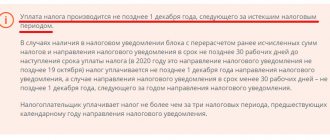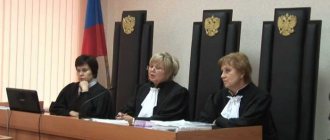Article 152 of the Code of Criminal Procedure of the Russian Federation provides for the place where the preliminary investigation is carried out.
The Code of Criminal Procedure provides for some exceptions to the rule in question. Let's consider the instructions on the procedure, its timing, the capabilities of authorized persons, etc. Multi-channel free hotline Legal advice on criminal law. Every day from 9.00 to 21.00
Moscow and region: +7 (495) 662-44-36
St. Petersburg: +7 (812) 449-43-40
Place of residence of subjects
Art. 152 part 4 of the Code of Criminal Procedure of the Russian Federation provides for the possibility of carrying out investigative actions at the location of the accused or most of the witnesses. In this way, the goals of the actions taken by authorized persons are ensured. Clause 4 art. 152 of the Code of Criminal Procedure of the Russian Federation defines them as follows:
- Completeness of the investigation.
- Objectivity of events.
- Compliance with procedural deadlines.
Transfer of the case
The inquirer/investigator, after establishing the fact that this crime is beyond his jurisdiction, takes urgent actions. After this, the authorized person transfers the case to higher officials. In particular, the investigator forwards the materials to the head of the department, the investigator - to the prosecutor. Superior officials, in turn, transfer materials according to jurisdiction. In Part 6 of Art. 152 of the Code of Criminal Procedure of the Russian Federation, in accordance with a reasoned resolution of the head of a higher investigative body, the case may be sent to a higher unit for preliminary measures. In this case, the prosecutor must be notified of this in writing.
Art. 152 of the Code of Criminal Procedure of the Russian Federation with comments
The article in question formulates the rules for territorial jurisdiction. This term legitimately refers to the location where preliminary events are being held. This is confirmed by a direct reference to this definition in Art. 152 of the Code of Criminal Procedure of the Russian Federation. In accordance with the general rule, the preliminary investigation is carried out where the crime is completed. In this case, the location of the consequences of the act does not matter.
Article 158 of the Code of Criminal Procedure of the Russian Federation. End of preliminary investigation
- The preliminary investigation ends: 1) in criminal cases for which a preliminary investigation is mandatory - in the manner established by Chapters 29 - 31 of this Code; 2) in other criminal cases - in the manner established by Chapter 32 of this Code.
- Having established, during pre-trial proceedings in a criminal case, circumstances that contributed to the commission of a crime, the inquiry officer, the head of the investigative body, the investigator has the right to submit to the relevant organization or the relevant official a proposal to take measures to eliminate these circumstances or other violations of the law. This submission is subject to consideration with mandatory notification of the measures taken no later than one month from the date of its issuance.
Distribution of territories
The boundaries of areas between investigative bodies of the same name are determined by departmental legal acts. In this case, the administrative-territorial division is taken into account. At the initial stages of preliminary activities, jurisdiction is determined approximately. The investigation begins in the area where criminal proceedings were initiated or where the case was sent by the head of the unit/prosecutor. To establish the jurisdiction of another body, the rules provided for in part five of Art. 152 of the Code of Criminal Procedure of the Russian Federation.
Actions outside the investigation area
For their implementation in Art. 152 of the Code of Criminal Procedure of the Russian Federation (with comments) provides for two methods:
- Departure of an authorized person to another territory.
- Sending an assignment to another location.
The choice of method is carried out by the investigator himself in such a way that there is no alienation of his exclusive procedural capabilities (powers). The assignment represents a certain exception from the principle of immediacy. In this regard, its limits must be limited. Otherwise, the institution of investigative jurisdiction will lose its meaning, since in such a situation everything can be entrusted to other bodies. In these cases, it is necessary to be guided by Art. 151, 152 of the Code of Criminal Procedure of the Russian Federation.
Arbitrage practice
There are quite a lot of examples of cases that are considered in court taking into account the provisions of this norm.
In particular, these include:
- In 2022, the judicial body of the city of Tula issued a resolution according to which the complaint of the defender of citizen F was considered. The lawyer asked the judge to satisfy the report she filed and send the materials for investigation to another region. The defender pointed out that they had previously submitted a similar request to the leadership of the investigative agency, but they were refused. It was pointed out that in the region where the perpetrator is located, all the circumstances of the case cannot be fully investigated. Law enforcement officials, including the leadership of the investigative agency and the prosecutor's office, were present during the consideration of the complaint and asked to refuse the document submitted to her. The accused did not appear in court. The judge, after studying the materials, indicated that this act cannot be satisfied, since the person conducting the investigation has the right to independently determine its course. In Art. 152 of the Code of Criminal Procedure states that the case must be investigated in the place where the act contrary to the law was committed. The crime was committed on the territory that is under the jurisdiction of the investigative authorities of Tula. Despite the fact that the judge of the Tula court is the injured party, this does not mean that the case will not be fully investigated. The defense's arguments are not objectively motivated by anything. Also, the lawyer did not indicate in the complaint exactly which rights of the guilty person were violated by the issued act.
- The Magistrate's Court of the city of Smolensk issued a resolution stating that citizen K., being at a certain point in time in her apartment at one of the addresses in the specified city, carried out actions aimed at registering persons for migration registration. She handed over the necessary documentation to an employee of the multifunctional center. It is indicated that the registration process takes place in a body that is endowed with the appropriate powers by the state. Such a body is located in the city of Smolensk and belongs to a different judicial district. The investigative authorities did not reflect in the indictment document that the perpetrator committed illegal actions that would relate on a territorial basis to this site. For this reason, the case was transferred for consideration to another site.
- The appeal ruling was made by the court of the city of Tambov. At the meeting, the complaint of lawyer E was considered. The court ruling was appealed, according to which the accused citizen O.’s period of detention was extended. After hearing the parties to the process, a decision was made to leave the filed complaint without satisfaction. O. was detained by the investigative authorities in accordance with the Criminal Procedure Code, and he was charged with the elements provided for in part four of 228 of the Criminal Code. A preventive measure was chosen for the accused, which was detention. This measure was extended every couple of months. The lawyer pointed out that this measure was extended to eight months illegally. The judge came to the conclusion that the committed act was classified as serious, therefore it was considered permissible to extend the imprisonment for a period of more than six months. The materials presented by the investigator confirm that it was not possible to complete the investigation of the case earlier. The reason is objective circumstances. The difficulty is presented by the fact that the materials include a large number of perpetrators. In addition, several compounds are imputed. The court indicated that the circumstances due to which the specified measure was chosen in relation to O. had not disappeared. Data on O.’s involvement in the commission of an unlawful act are available in the materials presented to the court. The perpetrator has no medical contraindications for being in custody. The resolution also reflects paragraph 6 of Article 152 of the Code of Criminal Procedure, which affects cases when materials are transferred for investigative actions to a higher investigative body. To do this, a decision is made, which must be motivated. Considering that the case was not transferred to such a body, the complaint can be considered by the court to which it was filed.
The actions carried out by the investigative bodies fully comply with the provisions of procedural legislation. Otherwise, they will be found not to comply with the law. The rules regarding the investigative jurisdiction of case materials are taken into account when committing acts that contradict current legislation. Including Art. 152 of the Code of Criminal Procedure of the Russian Federation with the latest amendments states that such a place is the territory on which the guilty person, the injured party or witnesses are located. In each of the listed cases, certain conditions are met, for example, the case contains confirmation that the victim lives outside the state. If such a fact has not been established, the case can be investigated in the place specified by law.
Order
The investigator must personally perform procedural actions if:
- A large number of activities need to be carried out.
- Procedural actions concern the assessment of evidence in its entirety, that is, making a decision that determines the direction of the investigation.
In other cases, it is permissible to entrust the conduct of events to other officials. It is formalized in writing. It contains instructions to carry out investigative or procedural actions relating to the case under study. The Code provides for 2 types of instructions to the investigative body:
- At the place of investigation.
- Outside the investigation area.
In the latter case, the order can be sent to both the inquiry body and the investigator.
Article 156 of the Code of Criminal Procedure of the Russian Federation. Start of preliminary investigation
- The preliminary investigation begins from the moment a criminal case is initiated, about which the investigator, inquiry officer, or inquiry body issues a corresponding resolution. In the resolution, the investigator or interrogating officer also indicates that he has accepted the criminal case for his proceedings.
- If an investigator or inquiry officer is entrusted with the proceedings of an already initiated criminal case, then he issues a resolution to accept it for his proceedings, a copy of which is sent to the prosecutor within 24 hours from the date of its issuance.
Specifics
When entrusting procedural activities, a number of points must be taken into account:
1. The performer is subject to the procedure for recusal.
2. The rights of participants to be present during the execution of the assignment must be ensured. For example, if an event is carried out at the request of a victim, suspect, accused, lawyer, civil plaintiff, then they have the right to participate in it. At the same time, the defense attorney must be notified of the actions taken against the suspect. Violation of this rule entails the inadmissibility of evidence obtained during the activities performed.
3. In addition to investigative activities (aimed at collecting evidence), the assignment of other procedural actions is allowed. These include:
— familiarizing persons with decisions recognizing them as participants in criminal proceedings and explaining to them their responsibilities and rights;
— execution of coercive measures (arrest, collection of an obligation to appear, seizure of property, detention);
— ensuring measures to identify and eliminate the circumstances that contributed to the commission of the crime.
Article 161 of the Code of Criminal Procedure of the Russian Federation. Inadmissibility of disclosure of preliminary investigation data
- Data from the preliminary investigation are not subject to disclosure, except for the cases provided for in part three of this article.
- The investigator or inquiry officer warns participants in criminal proceedings about the inadmissibility of disclosing without appropriate permission the data of the preliminary investigation that has become known to them, for which they sign a warning with a warning of liability in accordance with Article 310 of the Criminal Code of the Russian Federation.
- Preliminary investigation data may be made public only with the permission of the investigator, interrogating officer and only to the extent that they consider it permissible, if the disclosure does not contradict the interests of the preliminary investigation and is not associated with a violation of the rights and legitimate interests of participants in criminal proceedings. Disclosure of data on the private life of participants in criminal proceedings without their consent is not permitted.
professional criminal lawyer
in Moscow
additional information
The order to carry out operational or investigative activities, provided for in Art. 152 of the Code of Criminal Procedure of the Russian Federation, can be carried out with the aim of establishing the identity of the culprit or his address, identifying property subject to seizure or sources of evidence. Operational units choose specific methods and means to implement orders independently. The established ten-day period can be extended or changed by the guarantor himself. Procedural measures are carried out within the time limits of the preliminary investigation. Investigative actions can also be carried out in connection with a suspended case. This provision is fixed in Article 210 of the Code.
Article 150 of the Code of Criminal Procedure of the Russian Federation. Preliminary investigation forms
- The preliminary investigation is carried out in the form of a preliminary investigation or in the form of an inquiry. 1.1. The inquiry is carried out in a general manner or in an abbreviated form.
- A preliminary investigation is mandatory in all criminal cases, with the exception of criminal cases of crimes specified in part three of this article.
- The inquiry is carried out: 1) in criminal cases of crimes provided for in Articles 112, 115, 116, 117 part one, 118, 119, 121, 122 parts one and two, 123 part one, 125, 127 part one, 128.1, 150 part one , 151 part one, 151.1, 153 - 157, 158 part one, 159 part one, 159.1 part one, 159.2 part one, 159.3 part one, 159.4 part one, 159.5 part one, 159.6 part one, 160 part one, 161 part one , 163 part one, 165 part one, 166 part one, 167 part one, 168, 170, 171 part one, 171.1 part one, 175 parts one and two, 177, 180 parts one and two, 181 part one, 203, 207 , 213 part one, 214, 218, 219 part one, 220 part one, 221 part one, 222 parts one and four, 223 part one and four, 224, 228 part one, 228.2, 228.3, 230 part one, 231 part one , 232 part one, 233, 234 part one and four, 240 part one, 241 part one, 242, 243 - 245, 250 part one, 251 part one, 252 part one, 253, 254 part one, 256 - 258, 260 part one, 261 part one and two, 262, 266 part one, 268 part one, 294 part one, 297, 311 part one, 312, 313 part one, 314, 314.1, 315, 319, 322 part one, 322.1 part one , 323 part one, 324 - 326, 327 parts one and three, 327.1 part one, 329 and 330 part one of the Criminal Code of the Russian Federation; 2) in criminal cases of other crimes of minor and medium gravity - on the written instructions of the prosecutor.
- By written order of the prosecutor, the criminal cases specified in paragraph 1 of part three of this article may be transferred for preliminary investigation.
Applications
A separate order may be accompanied by copies of investigative documents. These include, in particular, protocols of inspections, interrogations, etc. Documents must relate to the circumstances to be established. If the order concerns the seizure of correspondence and its seizure, a court ruling is required. According to Art. 152 of the Code of Criminal Procedure of the Russian Federation, the executor can carry out additional measures that are inextricably linked with those specified in the received order. If the order concerns a search, detention of a suspect, or seizure, then the relevant resolutions must be attached to it (a prosecutor's sanction for a search, for example).
Urgent actions
They are carried out before the investigator forwards the case to the prosecutor for further transfer of jurisdiction. Urgent should be understood as any measures, delay in implementation of which may lead to loss of evidence. The deadline and list of such investigative actions established for the investigative bodies are of a guiding nature for the investigator. The list and time limits are formulated in Art. 157 of the Code.
Compulsory procedural measures
The question of which territorial authority should issue permission for them when executing orders has not been resolved in the legislation. When the relevant decision is made without the participation of the suspect/accused, it seems appropriate to obtain a ruling from the court at the place where the investigation is being conducted. In many cases, it is necessary to ensure the presence of the subject of the crime in the courtroom during the actual consideration of the case. In such situations, permission to use coercive measures when executing an order is issued by the court at the place where the procedural action is being carried out. This provision is enshrined in Art. 108, part 4 of the Code.
Functions of enforcement officers
In Article 40 of the Code of Criminal Procedure of the Russian Federation, the phrase “bodies of the Federal Bailiff Service” was replaced with “compulsory enforcement authorities of the Russian Federation.” Part 4 has been added to the article with the following content:
In the compulsory enforcement authorities of the Russian Federation, the powers of the head of the inquiry body are exercised by the chief bailiff of the Russian Federation, the chief bailiffs of the constituent entities of the Russian Federation, their deputies, and senior bailiffs.
Article 113 of the Code of Criminal Procedure of the Russian Federation now states that the arrest is carried out by the bodies of inquiry on the basis of a decision of the inquirer, investigator, as well as by employees of the compulsory enforcement bodies of the Russian Federation on the basis of a court order.
The new version of Article 230 of the Code of Criminal Procedure of the Russian Federation establishes that measures to ensure the execution of punishment in the form of a fine, to secure a civil claim and possible confiscation of property by court order are carried out by the compulsory enforcement authorities of the Russian Federation.
Article 257 of the Code of Criminal Procedure of the Russian Federation establishes that:
An employee of the compulsory enforcement authorities of the Russian Federation ensures the order of the court hearing and carries out the orders of the presiding judge. The requirements of an employee of the compulsory enforcement authorities of the Russian Federation are mandatory for persons present in the courtroom.
The new version of Article 258 of the Code of Criminal Procedure of the Russian Federation states that measures of influence for violation of order in a court hearing are provided by employees of compulsory enforcement agencies. It is determined that:
An employee of the compulsory enforcement authorities of the Russian Federation takes measures to ensure that witnesses and persons in respect of whom criminal cases have been separated into separate proceedings in connection with the conclusion of a pre-trial cooperation agreement not interrogated by the court do not communicate with the interrogated witnesses, as well as with other persons, present in the courtroom.







